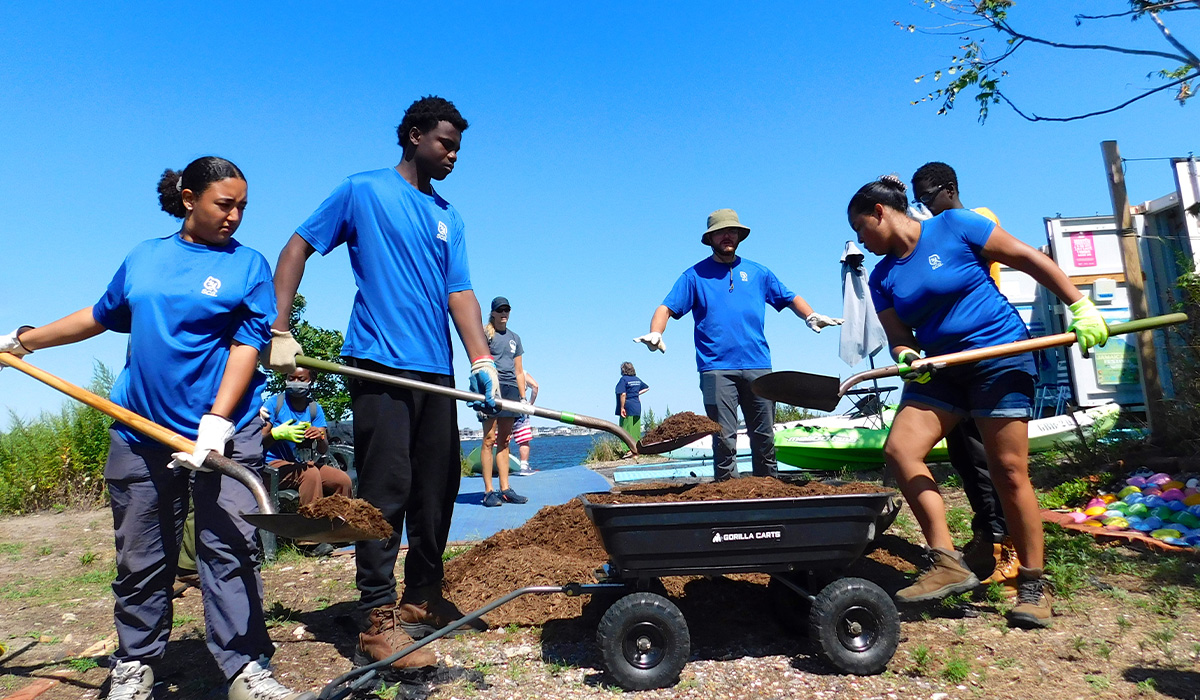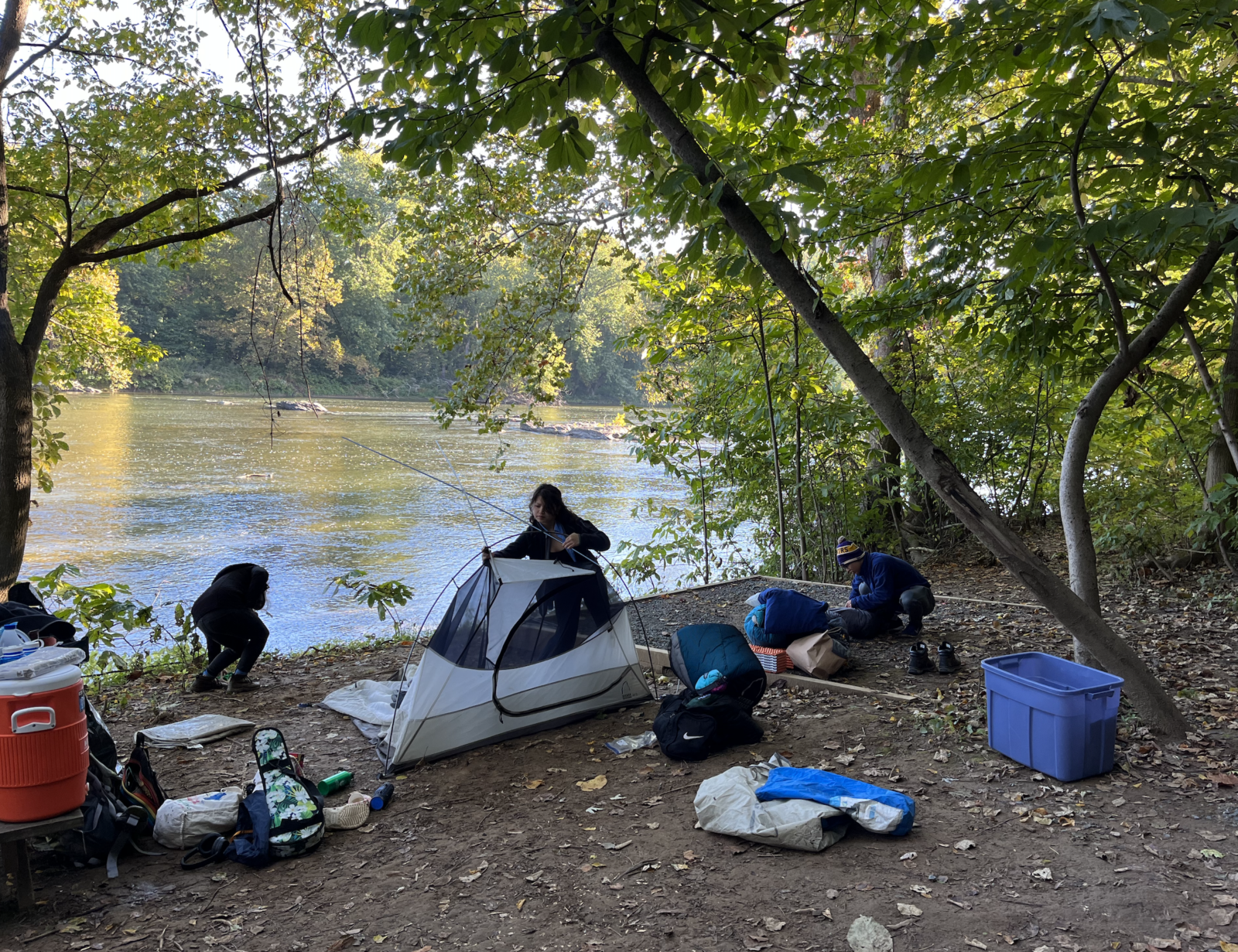onX and the Student Conservation Association
At onX, we’ve set out a few ambitious goals for ourselves, one of which is to “Help protect the access to outdoor recreation that exists, and advocate for more, for everyone.” That last bit hearkens deep within our roots where we acknowledge that public lands are for all of us. Across the country, groups on the ground are conducting life changing work, outdoors. Whether that’s teaching someone to winch a vehicle from a sandy trail, summit a peak, or getting their first shock gobble, there are people in need of the experiences and enriching growth that the outdoors can provide. onX’s products aim to empower users to get out and explore.
As part of this ongoing work, onX instituted a grant program to aid organizations whose values align well with ours outlined above. The latest partnership to flourish within this program is with the Student Conservation Association (SCA).
What is the SCA?
The SCA began as an idea by 24-year-old Elizabeth (Liz) Putnam at Vassar College. The paramount problem of the time, circa 1950’s, was that the national park system was under threat of being loved to death. Sound familiar? As it turns out, the issues we hear about today—backlog maintenance, understaffing, litter, social trails, and overcrowding—were just as pertinent then. The program, inspired by Roosevelt’s Civilian Conservation Corps, developed by Putnam and collaborator Marty Hayne, set out to connect students, specifically, with energy, drive, and passion with opportunities in the conservation industry where the need was overflowing. In 1957, 53 students gathered in Olympic National Park for roughly three weeks to conduct their first-ever trial project.
Pre-civil, women’s, and environmental rights movements, Putnam faced countless challenges as a woman trying to better an industry dominated by men. She would often sign letters E. Sanderson Cushman (maiden name) to invoke a sense of gender anonymity. However, that pioneering spirit she had, has carried through the organization’s 60-plus year history.
They have been at the forefront of justice, equity, diversity, and inclusion (JEDI) not just by being a women-led organization, but through a myriad of programmatic structures including working in urban settings rather than just remote national parks. This includes multicultural participants and, most recently, developing affinity crews. These are housed under a program that piqued our interest at onX. The program is known as Urban Green. Read on for more specifics about this program.
onX and Atlanta
As part of our grant to SCA, we funded four trips in three cities this year: San Francisco, Washington, D.C., and Atlanta. All of these were a part of SCA’s Urban Green program which aims to greenify large metropolitan areas, and is an offshoot of their history of working in remote national parks. It meets urban youth in their own environments and proves the climate movement can start within big cities and in communities. In Atlanta, the mission is to “Elevate the youth voice and engage the next generation of conservation leaders in building a more resilient nation with equitable access to green spaces.”
The crux of what makes this program so special is that students are often paid for their work, as opposed to a volunteer model. The objective is job-readiness, so the participants leave with a set of marketable skills and a fulfillment that they have helped better their own community. Most of these students wouldn’t have the opportunity to take the time away from their families, had the financial compensation not been in place.
The People
This trip was special. It was the first time it was an all inclusive crew team. This means that there was a broad mix of identities participating as crew members. A dream of SCA Community Program Manager, Jonathan Johnson, the inclusive crew supports the mission of SCA through projects such as building gardens and fire pits at the Biggers House—an affordable housing option for aging LGBTQIA community members. They have also spent a few Saturdays working with the Wylde Center and the Aware Wildlife Center where they learned about environmental justice and wildlife rehabilitation.

The crew of six, meets twice weekly—once virtually midweek to learn from presenters, facilitated conversations, and working groups to talk about topics ranging from urban gardens to food deserts. While Saturdays are reserved for hands-on work in their communities. The crew members are all in high school and have signed on to learn and activate change in their area in preparation for going on to a career in conservation.
The Big Trip
The six crew members, two crew leaders, and Program Manager Jonathan Johnson departed Atlanta in a van and headed two and a half hours east to Elijah Clark State Park on Friday, November 4. The agenda for the overnight camping trip was filled with tutorials on outdoor skills, safety speeches, s’mores, ghost stories, fishing, and more. The mission is to get them comfortable outdoors on an overnight camping trip.
The students brought a range of experiences with them including folks who have never pitched a tent to boy scout level status. “The first thing they wanted to do was build a fire upon arrival,” reflects Johnson. Fran, originally from Panama, had been camping a couple times before and really stepped up to show leadership and teamwork as they aided the group in building the fire. They share, “I like helping and teaching people, and I’m glad I was able to help.” As the centerpiece of the trip, the fire played host to where the students would go on to share meals, stories, and growth.
Mars, who had never been camping before, was largely excited and not at all nervous. She helped with the fire and shared, “It was a pure hands-on learning experience.” As a first-timer, “I like camping. This is fun, I’m going to do it again.” When asked how the experience was as a whole her answer was clear, “Go camping, it’s fun!”

Saturday held some surprises, mostly in the form of rain. The day’s activities held in store some breakfast, fishing, and free time. Not to dissuade anyone from the experience, the rain and fishing just happened to be Elijah’s, 18 from Decatur, Georgia, two favorite things, “The raindrops hit the water and you see them bounce back up. It’s just really soothing.”
Bria, from Lithonia, was hooking a worm to fish with when she reflected on the camping trip thus far, “I like camping, even though I smell like fire and burnt wood.” Meanwhile, another crew member, Erin, sheltered both of them from the rain with an umbrella. They went on to advise that if you’re going camping, make sure to pick the right friends, pack a pillow, and if you have braids—bring a bonnet.
The Recap
Reflecting on the trip a few weeks later, Johnson talked a lot about two things; building community and self-governance. The crew, upon arriving at Elijah State Park, built something of a tent-city, which to Johnson, was both a physical and metaphorical community. You could see how friends were pitching their tents closer together while others, potentially who valued some solitude, were slightly further away. The decisions made in this exercise illuminated some personalities that arose throughout the weekend.
The second key takeaway from the weekend was how the group self-governed. Whereas some folks love music outdoors, whether in their earbuds or at a moderate volume from their speaker, this crew decided that the only audio stimulation would be the rain bouncing off the water, birds chirping, and the stories shared around the fire. Oh, and an alleged “wolf in the night” according to Johnson.
While camping, things have to get done—that’s the bottomline. How and when those happen is where growth occurs. On this trip, leaders stepped up, other folks learned new skills, and everyone managed a clean, tidy exit of their site according to the practices of Leave No Trace.
The physical camping trip was a glowing success, but it’s in the coming weeks where each of these students returns to their communities’ that the growth they experienced and skills they learned will truly be put to the test.